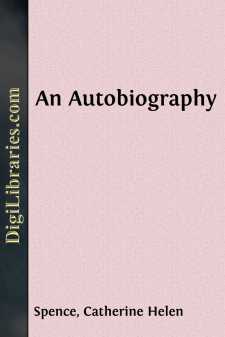Categories
- Antiques & Collectibles 13
- Architecture 36
- Art 48
- Bibles 22
- Biography & Autobiography 815
- Body, Mind & Spirit 144
- Business & Economics 28
- Children's Books 18
- Children's Fiction 14
- Computers 4
- Cooking 94
- Crafts & Hobbies 4
- Drama 346
- Education 58
- Family & Relationships 59
- Fiction 11834
- Games 19
- Gardening 17
- Health & Fitness 34
- History 1378
- House & Home 1
- Humor 147
- Juvenile Fiction 1873
- Juvenile Nonfiction 202
- Language Arts & Disciplines 89
- Law 16
- Literary Collections 686
- Literary Criticism 179
- Mathematics 13
- Medical 41
- Music 40
- Nature 179
- Non-Classifiable 1768
- Performing Arts 7
- Periodicals 1453
- Philosophy 65
- Photography 2
- Poetry 896
- Political Science 203
- Psychology 44
- Reference 154
- Religion 515
- Science 126
- Self-Help 85
- Social Science 83
- Sports & Recreation 34
- Study Aids 3
- Technology & Engineering 59
- Transportation 23
- Travel 463
- True Crime 29
Our website is made possible by displaying online advertisements to our visitors.
Please consider supporting us by disabling your ad blocker.
Mr. Hogarth's Will
Description:
Excerpt
Chapter I.
In a large and handsomely-furnished room of a somewhat old-fashioned house, situated in a rural district in the south of Scotland, was assembled, one day in the early summer of 185-, a small group in deep mourning.
Mr. Hogarth, of Cross Hall, had been taken suddenly ill a few days previously, and had never recovered consciousness so far as to be able to speak, though he had apparently known those who were about him, and especially the two orphan nieces whom he had brought up as his daughters. He had no other near relations whom any one knew of, and had never been known to regret that the name of Hogarth, of Cross Hall, was likely to become extinct. He had the reputation of being the most eccentric man in the country, and was thought to be the most inconsistent.
With the highest opinion possible of women, and the greatest pleasure in their society, he had never married; and with the greatest affection for his nieces, and the greatest theoretical confidence in them, he had hedged them about with countless laws and restrictions, and had educated them in a way quite different from the training of young ladies of their rank and prospects. He had succeeded two childless elder brothers in the possession of the estate; and Jane and Alice Melville were the only children of his only sister, who had been dead for fifteen years.
The funeral had just taken place, and the two girls had been summoned into the drawing-room to hear the will read by Mr. MacFarlane, the Edinburgh lawyer, who had drawn it out. They found in the room Mr. Baird, their uncle's medical attendant, and a stranger whom they had never seen before—a tall, grave-looking man of about thirty-four, whose mourning was new, and who showed a deep interest in what was going on.
Both the man of law and the man of medicine looked nervous and embarrassed, and delayed proceeding to business as long as they possibly could; fumbling with knots of red tape; opening the closed curtains to admit a little more light, and then closing them again, as if the light was too strong; so that the sisters had time to look at the stranger, and to wonder who he was and what his business could be there. He also seemed to be taking notes of the young ladies in a quiet, timid manner.
At last the will was opened, and after the usual preamble, the lawyer's voice seemed to break a little. He cleared his throat, and continued in a lower tone——
"As I have come to the conclusion that the minds of men and women are radically the same, and as I believe that if the latter are trained in the same way as the former they will be equally capable of making their own way in the world, I have acted upon this principle in the education of my two beloved nieces, Jane and Alice Melville, the only surviving children of my sister Mary Hogarth; and as I foresee that if I were to leave them wealthy heiresses my purpose would be completely thwarted, by Jane losing her independent character, and Alice sinking into a confirmed invalid, and by both being to a dead certainty picked up by needy spendthrifts, who will waste their fortunes and break their hearts, as their father, George Melville, served my poor foolish sister, I hereby convey and dispose all my property, whatsoever and wheresoever, heritable and moveable, to Francis Ormistown, otherwise Hogarth, at present head clerk in the Bank of Scotland, who is my son by a private irregular marriage contracted with Elizabeth Ormistown, on the ninth day of July, 18—, and who is my heir-at-law, though he would find it difficult to prove his claim, as he knows nothing of the relation between us, and as the only party besides myself cognizant of the marriage dares not come forward to prove it, but whose progress I have watched with interest, who has made an honourable position for himself, without any assistance from me beyond a good education, who has served faithfully, and who is likely to rule uprightly, who has raised himself from nameless poverty, and whom, therefore, I judge to be worthy of wealth and honour: Provided always, that he shall pay to Jane and Alice Melville, my beloved nieces aforesaid, the sum of twelve pounds a year each, in quarterly payments in advance, for three years following my decease, when such payments shall cease, as by that time I believe they will be independent in circumstances: Provided also that he shall give to the said Jane and Alice Melville, the furniture and personal effects belonging to them, as mentioned more particularly in the schedule marked A, appended to this instrument; and that he shall give to the said Jane and Alice Melville no further assistance either in money or in money's worth, directly or indirectly, whatsoever: Also providing that the said Francis Ormistown, otherwise Hogarth, shall not marry either of his cousins; the marriage of such near relations being mischievous and improper....



